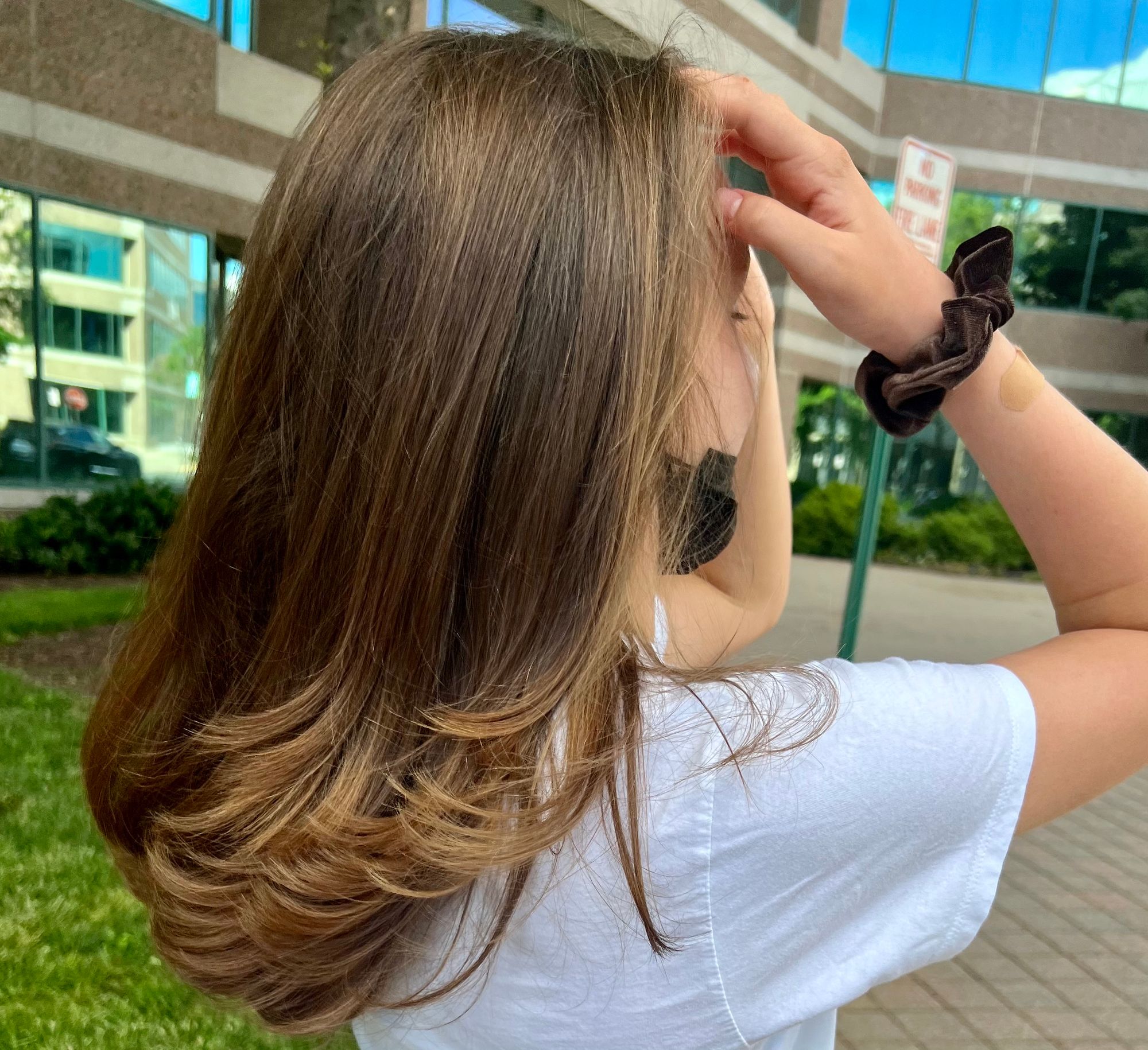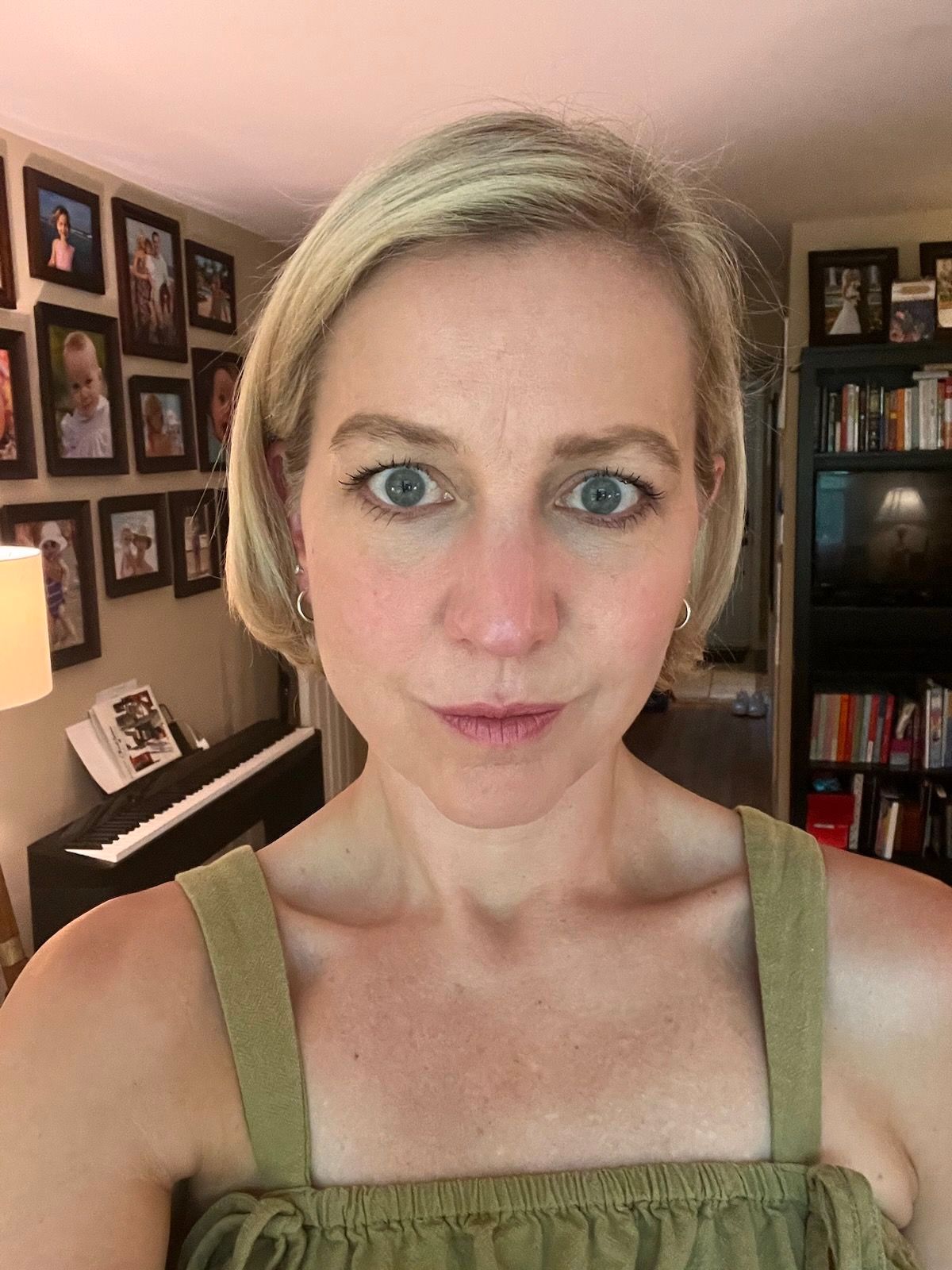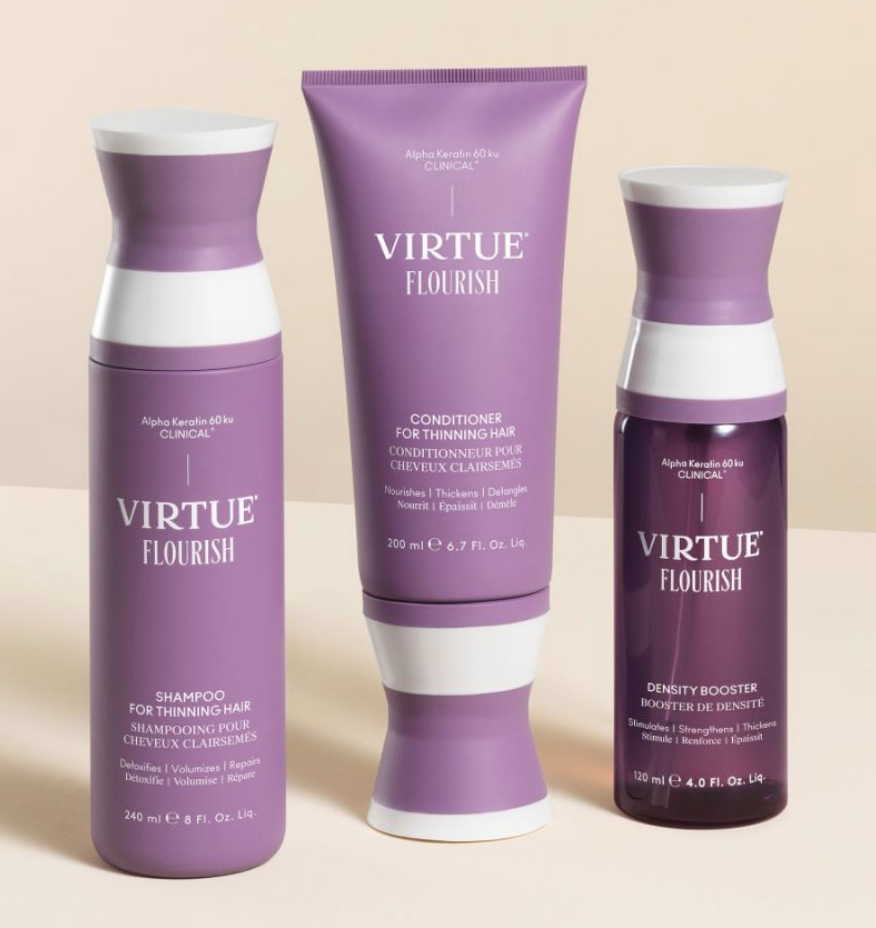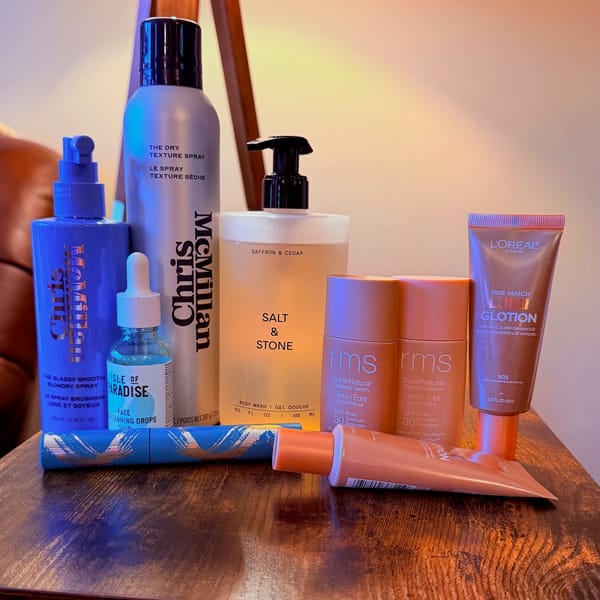Hair Today, Gone Tomorrow
Hair is a huge thing for women. When we start to lose it, we can really start to "lose it."

"A woman who cuts her hair is about to change her life."
—Coco Chanel
"If your hair is done properly and you're wearing good shoes, you can get away with anything."
—Iris Apfel
These are two of my favorite quotes about women and their hair. It may seem like such sentiments are a bit dramatic and over the top, perhaps a little vain and narcissistic, but if you're a woman, how often do you think about your hair? How much do your friends mention theirs? How about your sister or mom?
Back in 2018, InStyle surveyed 1,463 women across the nation about their hair. The results were fascinating, and they show that women, in general, place a lot of importance on it. A whopping 81% of women said "they feel most confident when their hair looks great."
It seems to me, based on my informal research since elementary school, that it doesn't even matter if you have fantastic hair, good hair, OK hair or a downright unruly mop, a lot of brain cells and time are focused on your strands.
The grass always seems to be greener on the other side. If we have straight hair, we wish we had wave or curl and vice versa. Fine-haired girls wish for fullness, and thick-haired girls ask for the thinning shears. And don't get me started on how much time and money we spend on hair color and highlights. Of course, that's not mentioning the ongoing debate over going grey or refusing to do so.

And unlucky for us, our shifting hormones over the years continue to change things up and keep us on our toes. We have incredible—goddess-like—hair while pregnant, then we have our babies, and suddenly we experience volume loss and little mind-of-their-own stick-up hairs on the top of our heads for what seems like forever. Once in peri-menopause or in menopause, hair loss is even more prevalent. The Cleveland Clinic estimates that more than 50% of women will experience noticeable hair loss.
Of course, as The Cleveland Clinic also explains, hormones are only one piece of the puzzle. Treatments like chemotherapy and various drugs can cause hair loss. Vitamin deficiencies, aging, recent surgery, extreme physical or emotional stress, an abnormal thyroid, rapid weight loss, pulling hair too tight and our genes can all play a part in our parts widening. Plus, there are conditions like alopecia, an autoimmune condition that causes patchy hair loss.
I am part of that aforementioned 50%. And, wow, have I spent a lot of time thinking about it. Over the past year or so, I've noticed seeing more skin on the top of my head. It first came to my attention when reviewing my makeup videos I make for my Beautycounter business. When I would lean over to get makeup out of my makeup bags, it was evident.
I've also noticed thinning at the corners of my crown, though my fine hair has always been thinner around the front of my head and super thick in the back. (My hair has always fallen in what I would consider the unruly category; that's why I rely on true experts for cut and color).
Still, I don't have real crazy before pics. The biggest thing I've noticed is that my ponytail is a lot smaller in diameter. If a hair-tie is not super new and tight, I have to wrap it and wrap it and wrap it and wrap it.

From the second I first noticed the thinning, I started researching solutions, starting with the drug-free options. After seeing tons of ads for it and oodles of influencers swearing it made a huge difference in their hair, I gave Vegamour GRO Hair Serum ($58 or $48 on Subscribe & Save) a go for several months, and no dice. I will admit that a certain man I know thinks his bald spot shrunk while using it, so he is finishing up my last bottle. And, hey, Nicole Kidman is the new spokeswoman for the brand.
Next I tried Bondi Boost Intensive Spray ($19.95 at Target), but I didn't like the way it made my hair feel, kind of sticky. Others seem to disagree; it has lots of fans, with 4.7 stars and 3,430 reviews on Ulta. I should mention that Vegamour has nearly as many rave reviews, 3,263 total reviews and 4.25 stars.
Recently, when I went to my dermatologist for my annual skin check, I asked her what she recommended for my hair thinning. She recommended Viviscal ($36/month) or Nutrafol ($79-$89/month) in terms of supplements I could try, since they had clinical studies backing up their claims. The other option was 5% minoxidil foam, the key ingredient in Rogaine, though there are many brands of minoxidil. Before starting them or any other treatment, my doctor ordered some labs to make sure I didn't have an iron deficiency or thyroid issue, which I did not.
One downside of minoxidil is that you have to use it indefinitely, and you have to be careful not to get it on areas where you don't want hair to grow. I read warnings about making sure to apply it to the scalp at least 20 minutes before going to bed to avoid it leaking onto the face via your pillow. There are also various side effects to consider, which scared me away from it, especially as someone who already gets migraines and has a family history of heart disease. Also, some people experience a lot of shedding before things improve.
I had heard so much about Nutrafol, so I took advantage of a holiday deal and got a subscription for $68, but I experienced a shipping nightmare. My package ended up getting lost. In the meantime, I ordered Viviscal, because I was fed up with Nutrafol's customer service and figured I could save some money. Besides, Gwyneth Paltrow, Reese Witherspoon, Karlie Kloss and several other stars recommended Viviscal. I had high hopes. And I was impatient.
Not long after I started the Viviscal, I got a lot of stomach cramping. I thought maybe it would just take a little time for me to adjust. Eventually, I decided to take a break, and my stomach issues eventually went away. I requested a return from Amazon. But then I didn't get around to dropping it off at Whole Foods for a while and decided to give the Viviscal another shot before eventually stopping it again. Why this time? I gained 6-7 pounds in less than a month, while not changing anything else. And it took me several weeks to lose it after stopping the supplement. This is very out of the ordinary for me.
I'm not saying Viviscal wouldn't work for you, or really any of the items I've mentioned, but they weren't a good match for me.
My most recent attempt before possibly trying minoxidil (what I consider my last resort) is Virtue's Flourish Hair Rejuvenation Treatment (Drug-Free) ($134 for a 3-month regimen, $55 for 1 month). After all, I absolutely love their 6-in-1 Styler ($34 for full size) and Frizz Block Smoothing Spray (currently out of stock)—finally a frizz-taming product that WORKS and smells delicious! Virtue also has a kit with minoxidil ($134 for a 3-month treatment, $55 for 1 month).

I'm about a month in and really happy with the Flourish Shampoo, Conditioner and Density Booster so far. The Density Booster smells a little medicinal, but it doesn't make my hair greasy. The company recommends applying to the scalp while hair is damp or dry, section by section, once daily at night. I usually shower in the afternoon after my workout and apply it then, while my hair is damp. I have tried it at night, though, when my hair is dry, and it doesn't make my hair look weird by morning, besides my usual bedhead.
It's too early to see a lot of difference, but I do have some baby hairs at the corners of my forehead. And my hair at least feels fuller; my pony tail, thicker. I have high hopes!
Stay tuned for an update in a few months!
—Natalie Kaar
PS. You can save 20% at Virtue right now with the code VIRTUE20.




